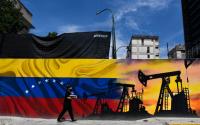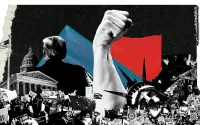MAJURO -- Survivors of two severe cases of nuclear contamination met in the Marshall Islands to mark the 51st anniversary of the first US hydrogen bomb test at Bikini Atoll, and accused authorities of lying about the effects of radiation.
"The reason the exposure was so bad is that we were lied to all the time," Dr Lyudmyla Porokhnyak, a survivor of the world's worst nuclear disaster at Chernobyl in 1986, told a conference on raising awareness of radiation dangers.
Marshall Islanders nodded in agreement, confirming what they saw as the similarities between the two experiences.
While Porokhnyak recounted how authorities in the then-Soviet Union initially tried to cover up the the Chernobyl reactor meltdown and downwind contamination, Marshall Islanders described similar efforts by the United States in 1954 to downplay the impact of the Bravo test.
Bikini Islanders were not evacuated for two to three days after the Bravo test, even though their land was covered by snow-like radioactive fallout.
Although many islanders developed severe radiation burns and had their hair fall out, the US Atomic Energy Commission issued a statement saying "there were no burns" and islanders were in good health.
US officials later allowed islanders to return home to live in radioactive environments without any clean up.
Rayon William, a Rongelap Islander, said she returned home with other islanders when US authorities said it was safe in 1957. But she said the food she ate then was laced with radioactivity from the test three years earlier.
"I've experienced many illnesses as a result of living in a contaminated island," she said.
It was not until after Rongelap residents evacuated themselves in 1985 that the US Congress funded scientific studies which confirmed islanders' fears that their home atoll was still contaminated.
Subsequently Congress funded a 45 million dollar trust fund that is now paying for a clean up and resettlement program.
The conference was sponsored by a survivors' group known as ERUB -- an acronym for the four most heavily exposed islands Enewetak, Rongelap, Utrik and Bikini, and which also means "broken" or "damaged" in Marshallese.
Delegates expressed concern that even today, studies and reports on the US nuclear testing program in the Marshall Islands remain classified.






